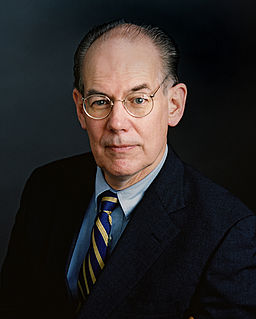A Quote by Stefan Collini
The recurrence during the eighteenth century Enlightenment of the aspiration to be the 'Newton of the moral sciences' testifies to the prestige not just of celestial mechanics, but of the 'experimental method' more generally.
Related Quotes
It seems perfectly clear that Economy, if it is to be a science at all, must be a mathematical science. There exists much prejudice against attempts to introduce the methods and language of mathematics into any branch of the moral sciences. Most persons appear to hold that the physical sciences form the proper sphere of mathematical method, and that the moral sciences demand some other method-I know not what.
17th century philosophers were not in a position to understand the mind as well as we can today, since the advent of experimental methods in psychology. It shows no disrespect for the brilliance of Descartes or Kant to acknowledge that the psychology which they worked with was primitive by comparison with what is available today in the cognitive sciences, any more than it shows disrespect for the brilliance of Aristotle to acknowledge that the physics he worked with does not compare with that of Newton or Einstein.
We are now returning to the 18th century empirical approach with the new interest in the evolutionary basis of ethics, with 'experimental' moral philosophy and moral psychology. As a result, we understand better why moral formulas are experienced as ineluctable commands, even if there is no commander and even if the notion of an inescapable obligation is just superstition. So moral philosophy has made huge progress.
Philosophers of science constantly discuss theories and representation of reality, but say almost nothing about experiment, technology, or the use of knowledge to alter the world. This is odd, because 'experimental method' used to be just another name for scientific method.... I hope [to] initiate a Back-to-Bacon movement, in which we attend more seriously to experimental science. Experimentation has a life of its own.
There are a whole other range of sciences that must deal with the narrative reconstruction of the inordinately complex events of history that can occur but once in their detailed glory. And for those kinds of sciences, be it cosmology, or evolutionary biology, or geology, or palaeontology, the experimental methods, simplification, quantification, prediction and repetition of the experimental sciences don't always work. You have to go with the narrative, the descriptive methods of what? Of historians.
The seers of ancient India had, in their experiments and efforts at spiritual training and the conquest of the body, perfected a discovery which in its importance to the future of human knowledge dwarfs the divinations of Newton and Galileo , even the discovery of the inductive and experimental method in Science was not more momentous.
What makes 'The Marriage of Souls' such a wonderful book is Collins's intricate reconstruction of the late eighteenth-century world. Simplicity and philosophy are the hallmarks of eighteenth-century art and architecture. The classically pure lines look deceptively simple and unburdened by heavy symbolism or imagery.




































